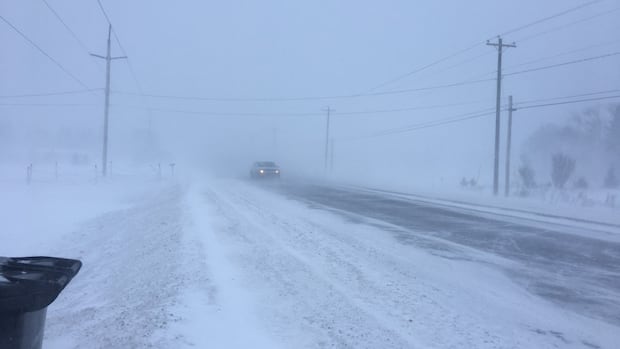WARNING: This article may affect those who have experienced sexual violence or who know someone affected by it.
Three criminal cases were thrown out of Manitoba's courts in 2024 due to excessive delays — and each one involved men accused of sex crimes in the northern part of the province.
The three cases were connected to Flin Flon and two remote First Nations. Flin Flon is about 630 kilometres northwest of Winnipeg. The First Nations at South Indian Lake and Pukatawagan are not accessible by road all year round.
Judges cited delays by police in disclosing witness statements and evidence as among the reasons that ultimately resulted in each man's charges being stayed.
"Frankly, it's quite concerning in relation to the pursuit of justice in the north and in Indigenous communities in general," said Victoria Perrie, a Winnipeg lawyer who also works in Nunavut.
A 2016 ruling by the Supreme Court, known as the Jordan ruling, sought to address unreasonable delays in court by setting limits on the time between when a person is charged and the anticipated end of trial. For provincial cases, it's 18 months, while superior courts are allotted 30 months.
Perpetuates trauma, mistrustPerrie says while the charges were rightfully stayed in the three cases under the Charter right to a prompt trial, not having a verdict can create stigma for the accused in their communities and a lack of resolution for complainants.
"Systemic delays disproportionately harm marginalized communities," Perrie said. "For victims of sexual violence, this can perpetuate cycles of trauma, mistrust in the legal system and lack of closure."
Sexual crimes are already underreported — a Statistics Canada report from November says few sex assaults are reported to police and only a fraction result in charges or convictions.
Indigenous women are more likely to face sexual assault in their lifetime but twice as likely to lack confidence in police as non-Indigenous women.
In one of the cases that were dismissed, a 28-year-old man was accused of sexually assaulting a 25-year-old woman, whom CBC is not naming because of a publication ban, in South Indian Lake, a fly-in community about 775 kilometres north of Winnipeg and the main settlement of O-Pipon-Na-Piwin Cree Nation.
The man was arrested in October 2021, but police took over two years to give prosecutors witness statements needed for trial, which provincial court Judge Catherine Hembroff called "entirely inexcusable and quite frankly inexplicable."
"It is shocking that not one, but two trial dates, had to be adjourned because this basic disclosure had not been provided," Hembroff said in court hearings, recordings of which were reviewed by CBC.
Prosecutors had an obligation to be more "proactive and diligent" in following up with RCMP to get the witness statements, the judge said.
"The fault lies not just with the RCMP … every effort should have gone into ensuring that the statements were promptly provided, particularly after the first trial date could not proceed due to the missing disclosure," Hembroff said.
CBC News confirmed with the RCMP in an email that the witness statements had been taken on the same day the sexual assault was reported to police.
Hembroff said it was also "heartbreaking" that the young woman came to court and had to endure the "painful experience" of testifying right before the defence applied for the charges to be stayed.
Even after time deductions for exceptional circumstances, Hembroff said the accused would face 28 months and 25 days until he would see the end of his trial — well over the 18-month limit for provincial matters.
In another case, a Pukatawagan man's sexual assault charges were stayed in The Pas in May. He was 19 when he was charged in March 2021 with the alleged sexual assault of a teen the previous December.
Prosecutors did not have statements from the mother of the girl who accused him of sexual assault in time for a pretrial date in October, seven months after the man was charged in court.
By late January, the defence still did not have the statements needed for a pretrial hearing, an indication of how the case "languished," provincial court Judge Lori Hunter said.
"The matter was not ready to move forward and that falls squarely at the feet of the Crown," Hunter said.
After deductions for exceptional circumstances, the judge said the Pukatawagan man would have waited 24 months for the completion of his trial, "well above" the maximum time.
In the most recent case, child pornography charges against a Flin Flon man were stayed last month for exceeding the reasonable provincial court time limit of 18 months.
The man was 19 in early 2022, when police found video of child pornography that involved a girl aged eight to 10 in the man's Snapchat on one of his devices.
It took four months before Crown prosecutors told the court they hadn't received a phone analysis from police, the judge said.
"This was a serious matter and it is truly unfortunate that it has not been decided on its merits," Judge Hembroff said in that decision in The Pas.
"This late disclosure [of the phone analysis] from RCMP at the front end played a role in this matter being dismissed for delay."
When asked by CBC about the delay, the RCMP sent a written statement saying the matter was taken seriously and that a number of specialized resources were deployed, including labour-intensive and time-consuming forensic analysis of the seized devices.
Hembroff found the 21 months the Flin Flon man waited for trial to be unreasonable and stayed his child pornography charges.
Justice taking longerA provincial spokesperson said reasons for delay can be varied and multi-faceted and everyone in the justice system is responsible for bringing cases to trial within a reasonable time.
"Manitoba Prosecution Service actively monitors the progress of cases and implements case plans to mitigate delays whenever possible," wrote a provincial spokesperson.
Manitoba provincial court closed over 33,483 cases during the 2021-22 fiscal year. There were 1,289 more cases closed in court than the year before. Nine per cent of the total cases that were closed in court took longer than the 18-month provincial court limit, over twice as many as the previous year.
The report says despite there being fewer cases in the system, they are taking longer to complete than before — mostly because of the pandemic and the associated suspension of court proceedings.
Hembroff stressed in the South Indian Lake case, citing the Supreme Court Jordan ruling, that "timely justice is one of the hallmarks of a free and democratic society."
"Unreasonable delay denies justice to the accused, victims and their families and the public as a whole."











